2024 NTU Blockchain Symposium: A Global Confluence of Academic Excellence and Industry Innovation
Singapore, September 20-21, 2024 — In an era marked by rapid technological advancements, the NTU Blockchain Symposium 2024 emerged as a pivotal event, uniting some of the world’s foremost experts in blockchain technology to explore its future potential and multifaceted applications. Hosted by the Nanyang Technological University Centre in Computational Technologies for Finance (NTU-CCTF) on September 20th and 21st, 2024, the two-day symposium attracted over 700 attendees from around the globe, including distinguished scholars, industry leaders, and blockchain enthusiasts. Co-organized by the Academy of Engineering, Singapore (SAEng) and supported by esteemed sponsors such as Hashkey Capital, Canaan Inc., DeBox, SNZ, Sight, Tokka Labs and the Blockchain for Good Alliance, the event was hailed as a resounding success, fostering dynamic discussions and showcasing groundbreaking advancements in blockchain technology.
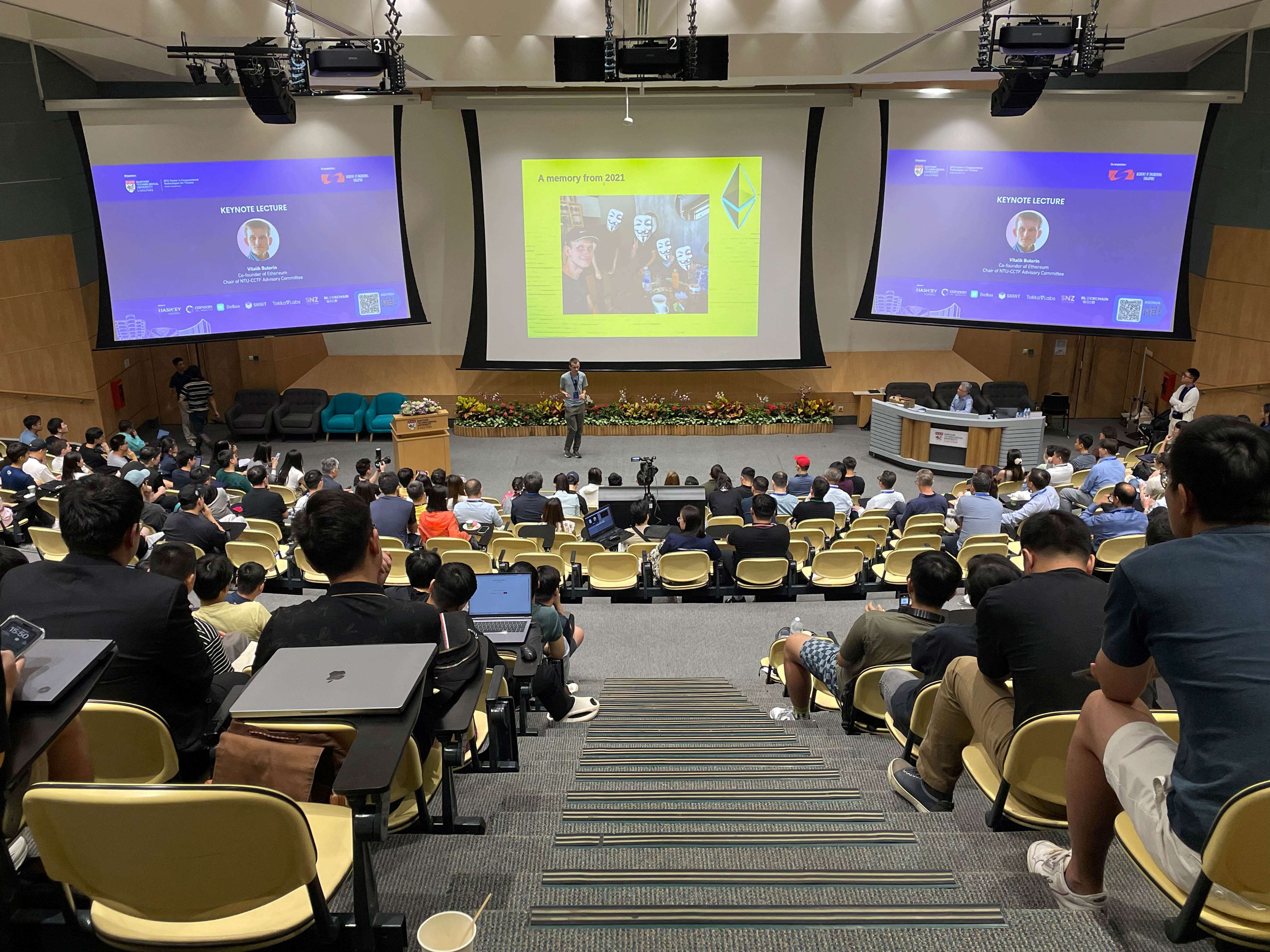
Vitalik Buterin, co-founder of Ethereum and Chair of the CCTF Advisory Committee, delivered an inspiring keynote on the next decade of crypto. He emphasized the transition from early-stage innovations to widespread usability, discussed advancements in scaling solutions like Optimism and Arbitrum, and highlighted the integration of AI with blockchain technologies. Vitalik's visionary insights into decentralized systems' potential to revolutionize industries from finance to governance sparked enthusiastic discussions during the Q&A session.
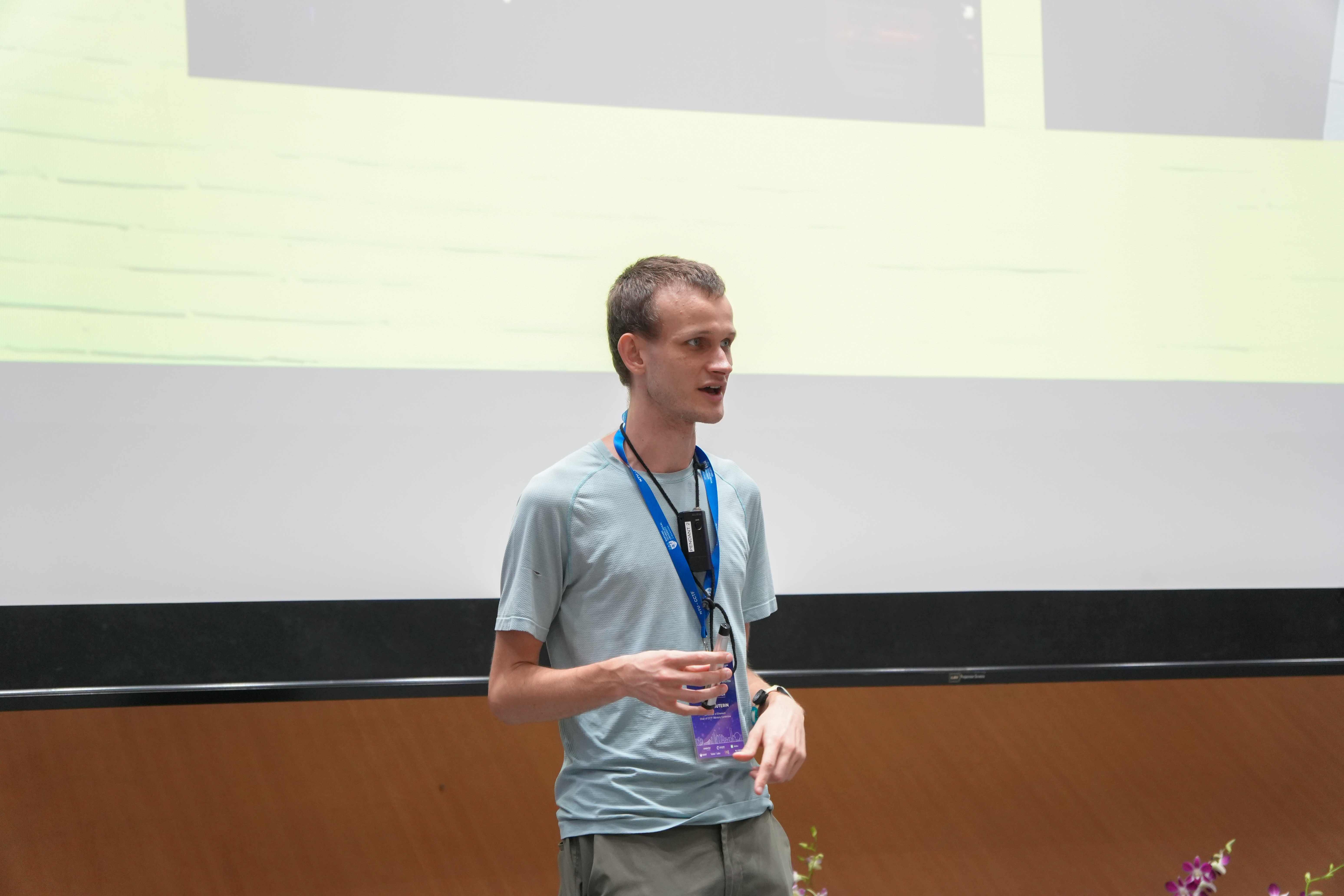
The symposium featured eight specialized sessions and two high-profile panel discussions, with contributions from leading scholars representing prestigious institutions. The presentations covered a comprehensive range of topics, including Decentralized Finance (DeFi), blockchain security, consensus mechanisms, smart contracts, cryptography and privacy, and the regulation and application of blockchain technology. The event began with a warm welcome from Professor Yonggang Wen, Director of NTU-CCTF.
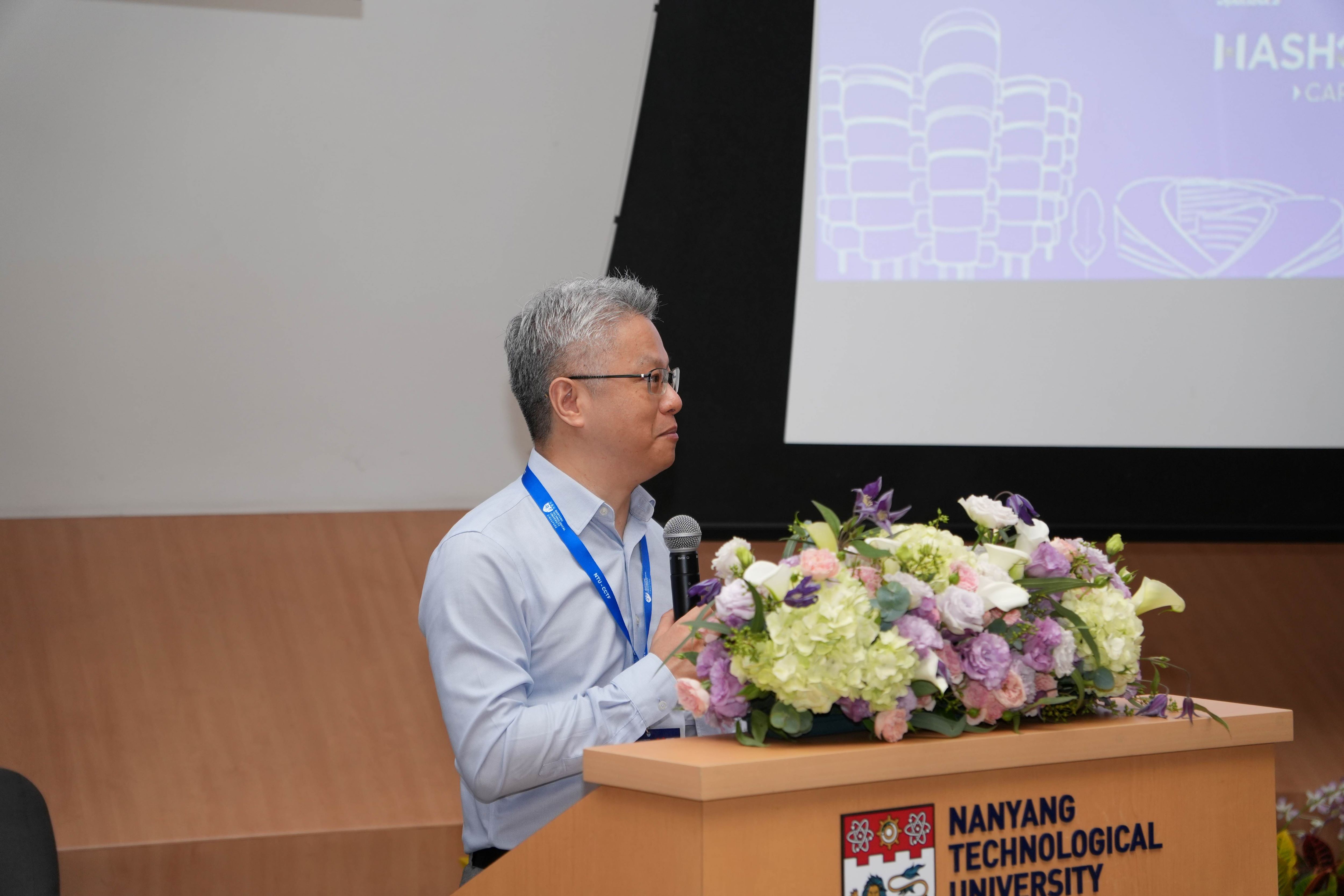
- Session 1: Decentralized Finance (DeFi) chaired by Associate Professor Te Bao. Professor Evgeny Lyandres of Tel Aviv University presented "Quantitative Investments in Decentralised Finance", exploring sophisticated investment strategies within DeFi ecosystems. Professor Karthik Pattabiraman from the University of British Columbia discussed "Security Challenges and Opportunities in Decentralised Finance", addressing critical security vulnerabilities and potential solutions in DeFi platforms. Associate Professor Fahad Saleh from the University of Florida presented "An Economic Model of a Decentralised Exchange with Concentrated Liquidity", providing insights into the economic dynamics of decentralised exchanges.
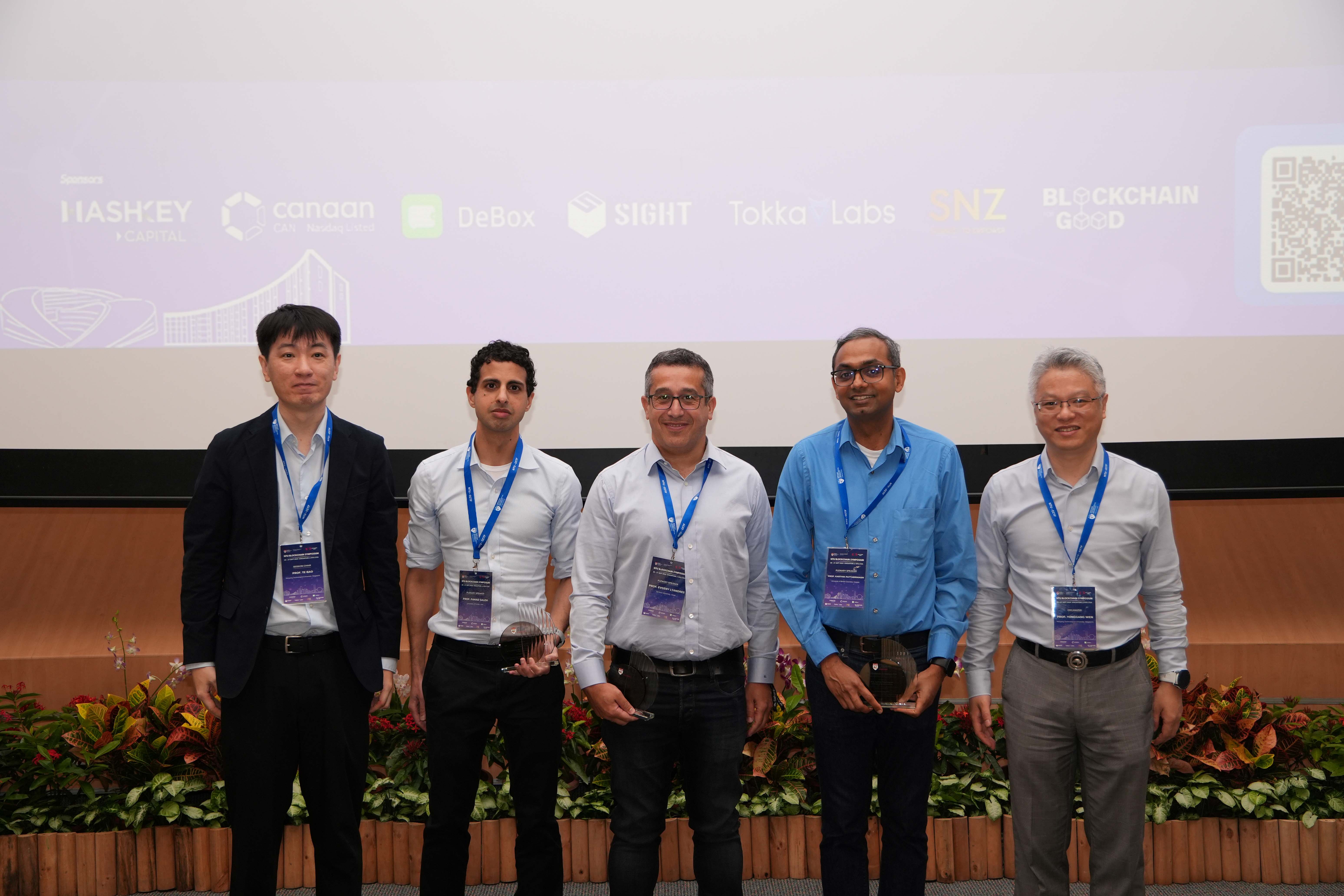
- Session 2: Security 1, chaired by Professor Tianwei Zhang. Professor Ghassan Karame from Ruhr-Universität Bochum delivered a compelling talk titled "Large-scale Nakamoto-Style Blockchains don't Necessarily Offer Better Security," challenging conventional perceptions of blockchain security at scale. Associate Professor Yuzhe Tang of Syracuse University presented "Understanding Ethereum Mempool Security under Asymmetric DoS by Symbolized Stateful Fuzzing," offering a deep dive into Ethereum's security mechanisms against denial-of-service attacks.
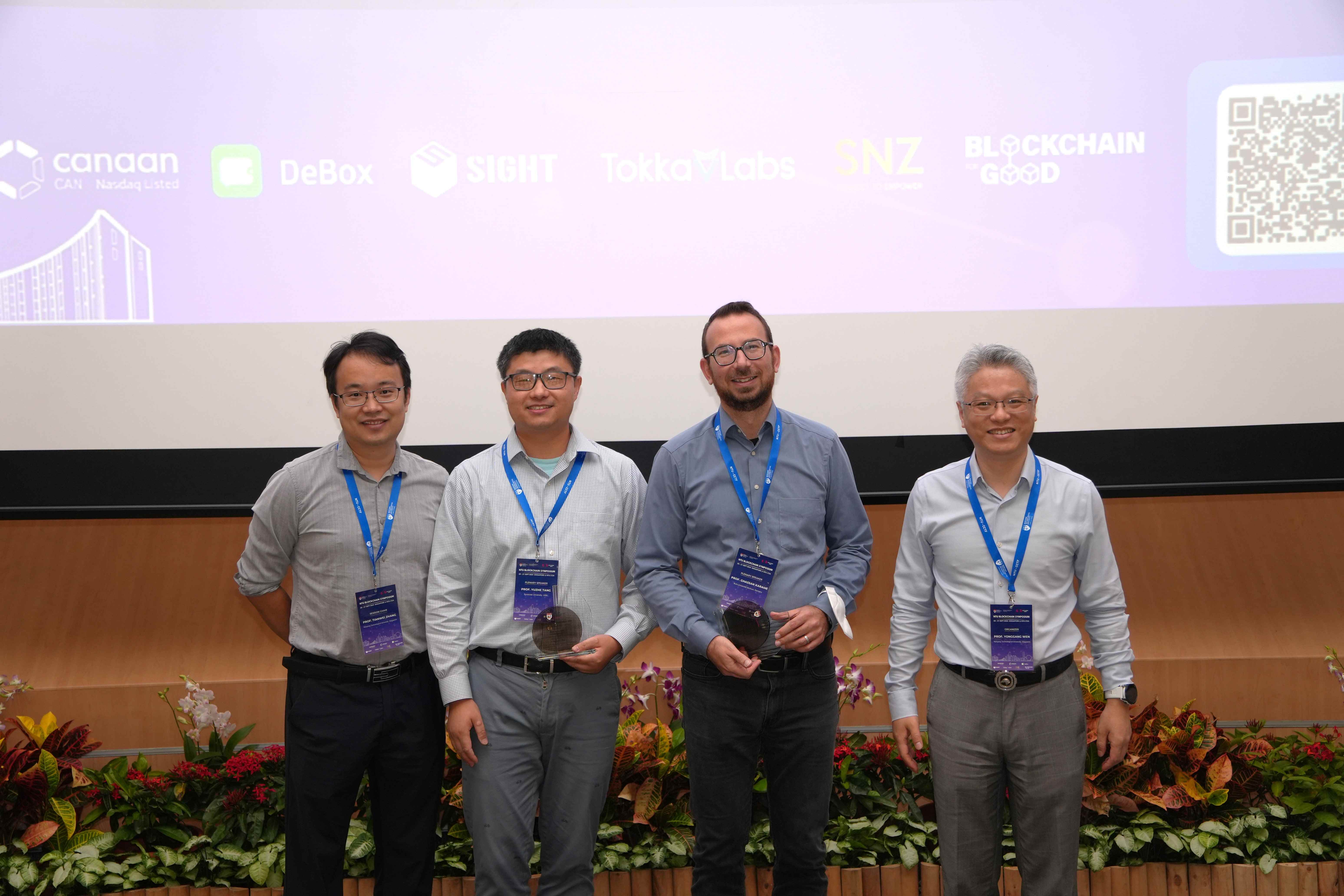
- Session 3: Consensus and Networks, chaired by Assistant Professor Wei Zhang. Professor Zhong Shao from Yale University discussed "Refinement-based Safety and Liveness Proofs for Consensus Protocols: LiDO and Beyond," advancing the theoretical foundations of consensus mechanisms. Professor Wenjing Lou of Virginia Tech explored "Role of Blockchain in Spectrum Sharing and Mobile Networks," highlighting blockchain's application in optimizing spectrum allocation. Professor Muriel Médard from the Massachusetts Institute of Technology presented "The Data Socket - A Canonical Construct for Web 3 and the Coding to Enable It," illustrating innovative approaches to data management in Web3 environments.
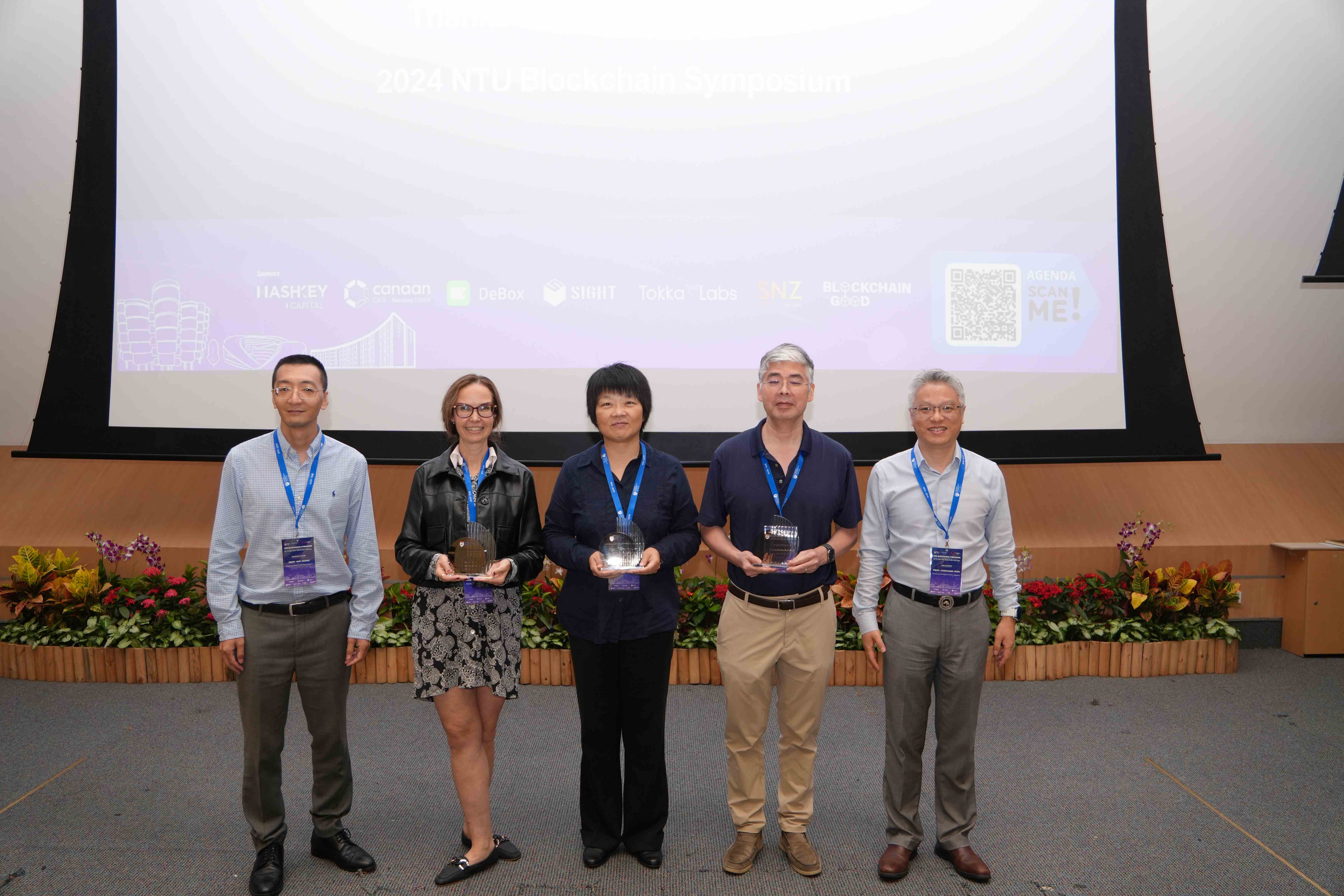
- Session 4: Smart Contracts was chaired by Associate Professor Yi Li. Associate Professor Cyrille Artho from KTH Royal Institute of Technology, Sweden, delivered "Defeating Business-Logic Smart Contract Exploits," focusing on enhancing smart contract security. Assistant Professor Fan Long of the University of Toronto presented "Unique Challenges for Smart Contract Security," addressing the distinct security issues inherent in smart contract deployment.
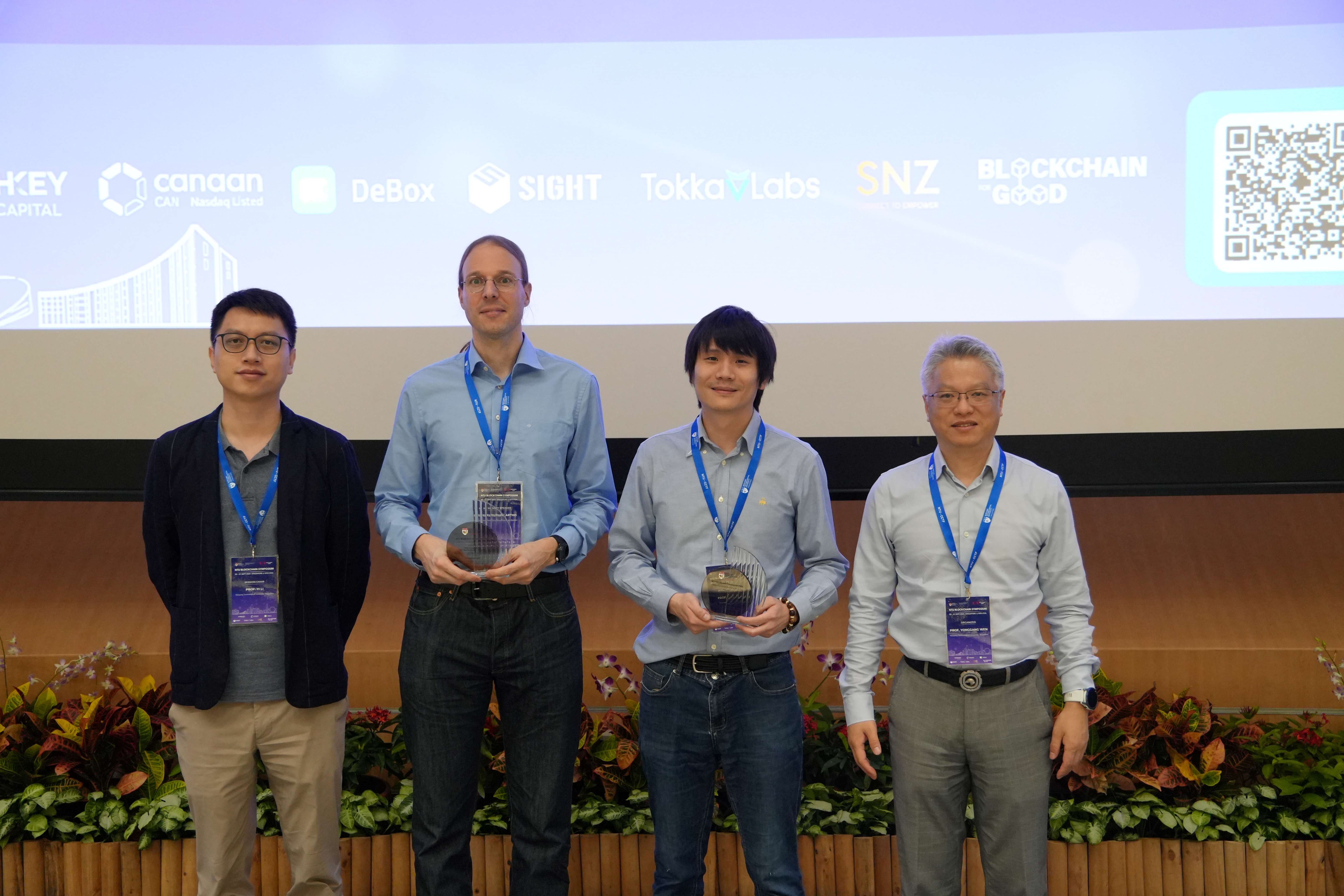
Panel Discussion 1: Blockchain Finance - Economic Opportunities and Risks, moderated by Associate Professor Te Bao. Panelists included Professor Evgeny Lyandres, Professor Zhiguo He, Professor Karthik Pattabiraman, Associate Professor Yizhou Xiao, and Associate Professor Fahad Saleh. The discussion provided a comprehensive analysis of the economic benefits and potential risks associated with blockchain finance, fostering insightful dialogue among experts.
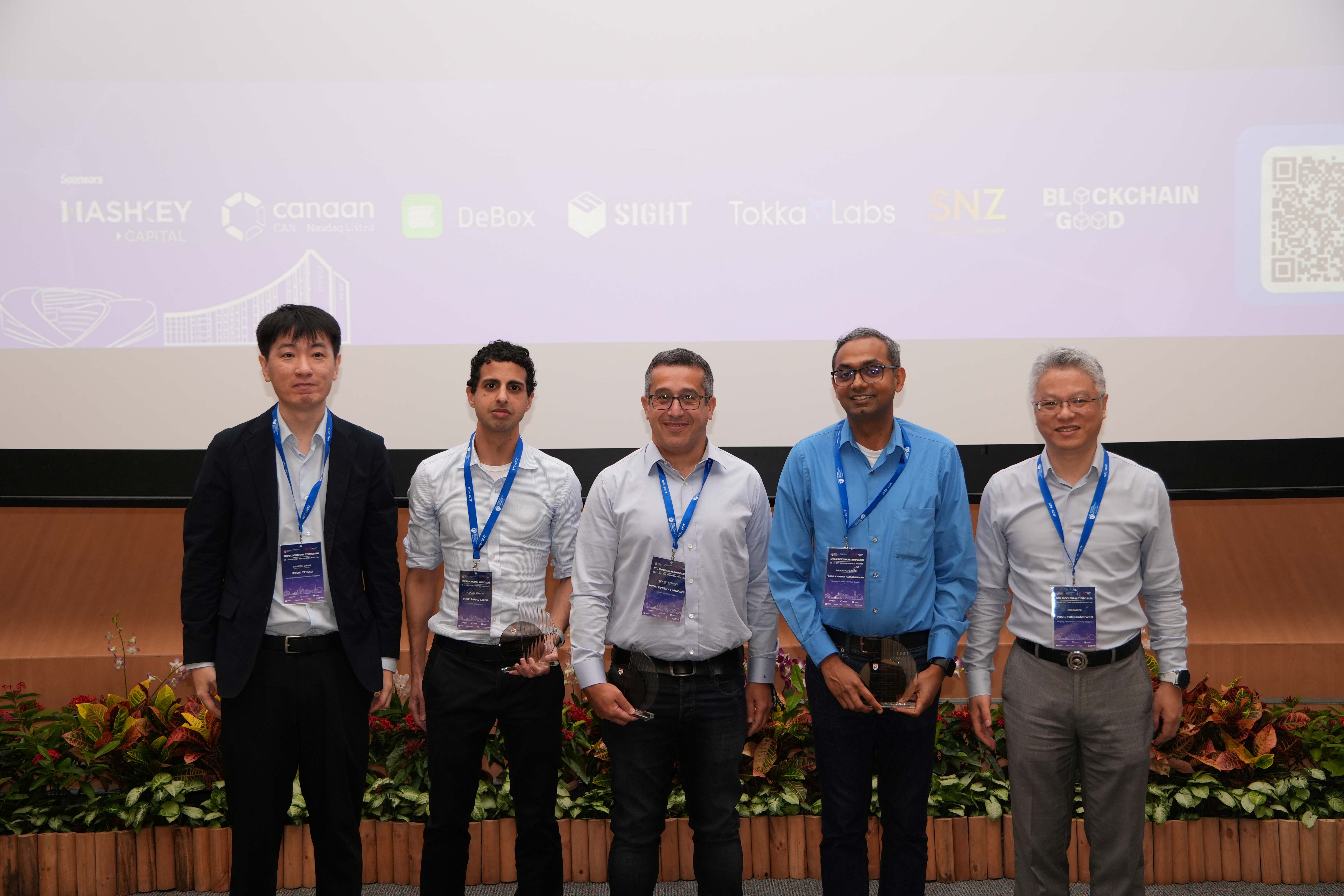
- Session 5: Cryptography and Privacy, chaired by Professor Feida Zhu. Professor Joseph Liu from Monash University presented "Quantum-Safe Cryptography for Blockchain," exploring cryptographic methods resilient to quantum computing threats. Professor AU Man Ho Allen of The Hong Kong Polytechnic University discussed "Privacy-Enhancing Technologies for Central Bank Digital Currencies: A Technical Perspective," highlighting advancements in privacy for digital currencies. Assistant Professor Jiapeng Zhang from the University of Southern California introduced "Efficient Verifiable Fully Homomorphic Encryption via Ring-R1CS," showcasing innovative encryption techniques for secure data processing.
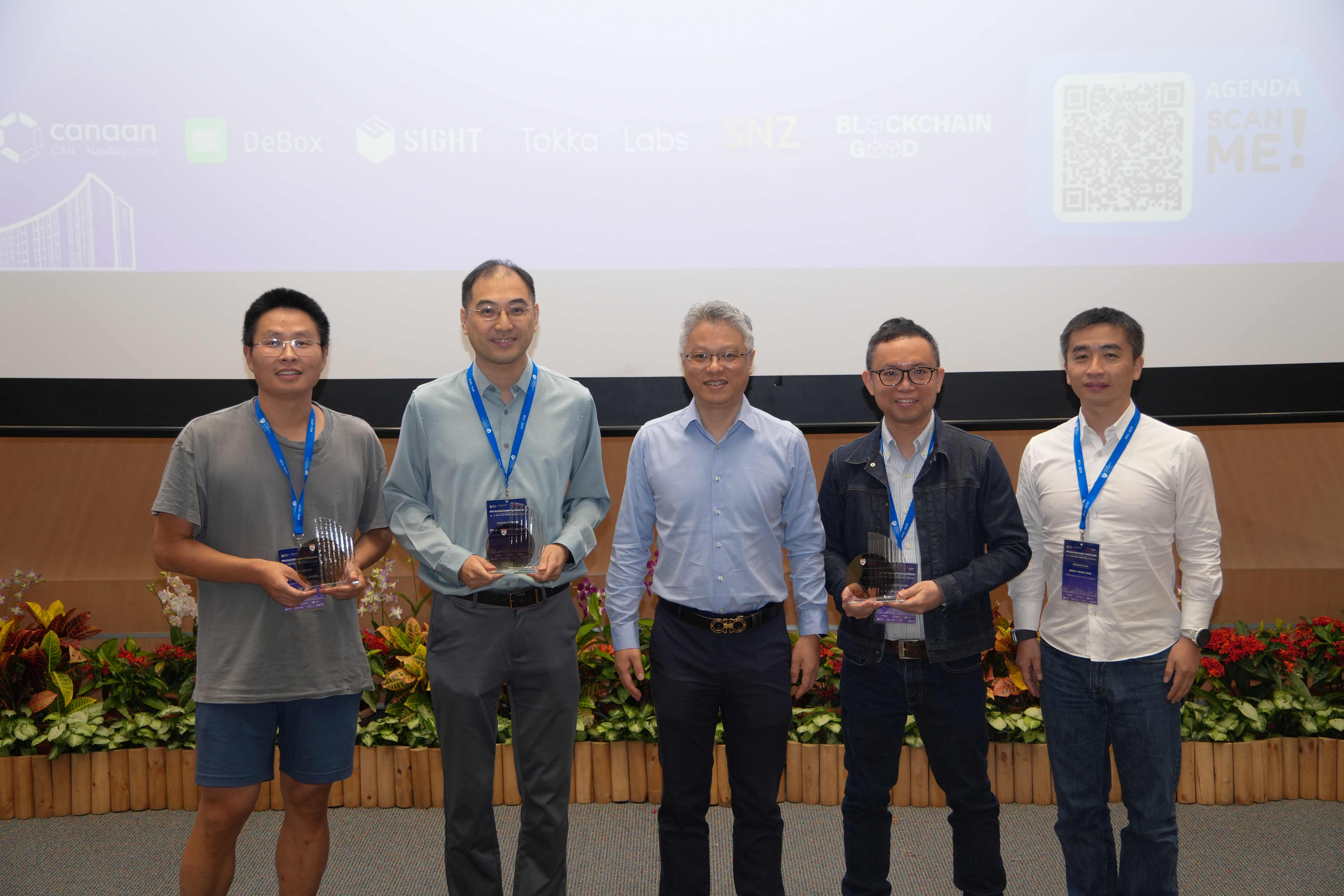
- Session 6: Security 2, chaired by Professor Dusit Niyato. Professor Salil Kanhere from The University of New South Wales presented "A Verifiable Credential-Based Trust Propagation Protocol for Personal Issuers in Self-Sovereign Identity Platforms," addressing trust mechanisms in decentralized identity systems. Professor Daniel Xiapu Luo of The Hong Kong Polytechnic University delivered "Unveiling the Hidden Weaknesses: Safeguarding Blockchain Ecosystems," focusing on identifying and mitigating vulnerabilities within blockchain infrastructures.
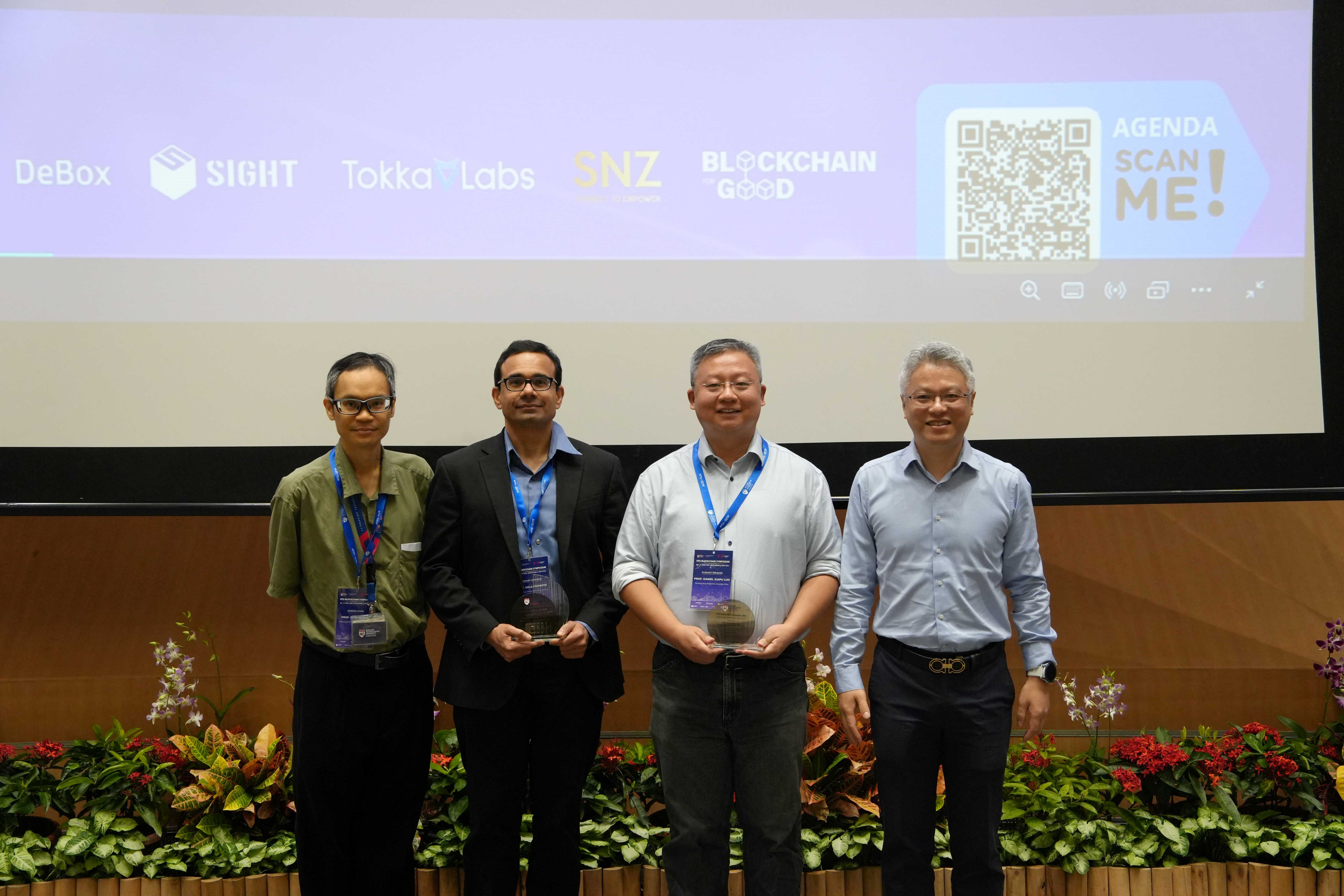
- Session 7: Economics, chaired by Associate Professor Te Bao. Professor Zhiguo He from Stanford University discussed "An Economic Model of Consensus on Distributed Ledgers," providing a detailed economic analysis of consensus mechanisms. Associate Professor Yizhou Xiao of The Chinese University of Hong Kong presented "Funding Rates Solved Crypto’s Noise Trader Problem," exploring innovative financial instruments designed to reduce market volatility caused by noise traders in the cryptocurrency space.
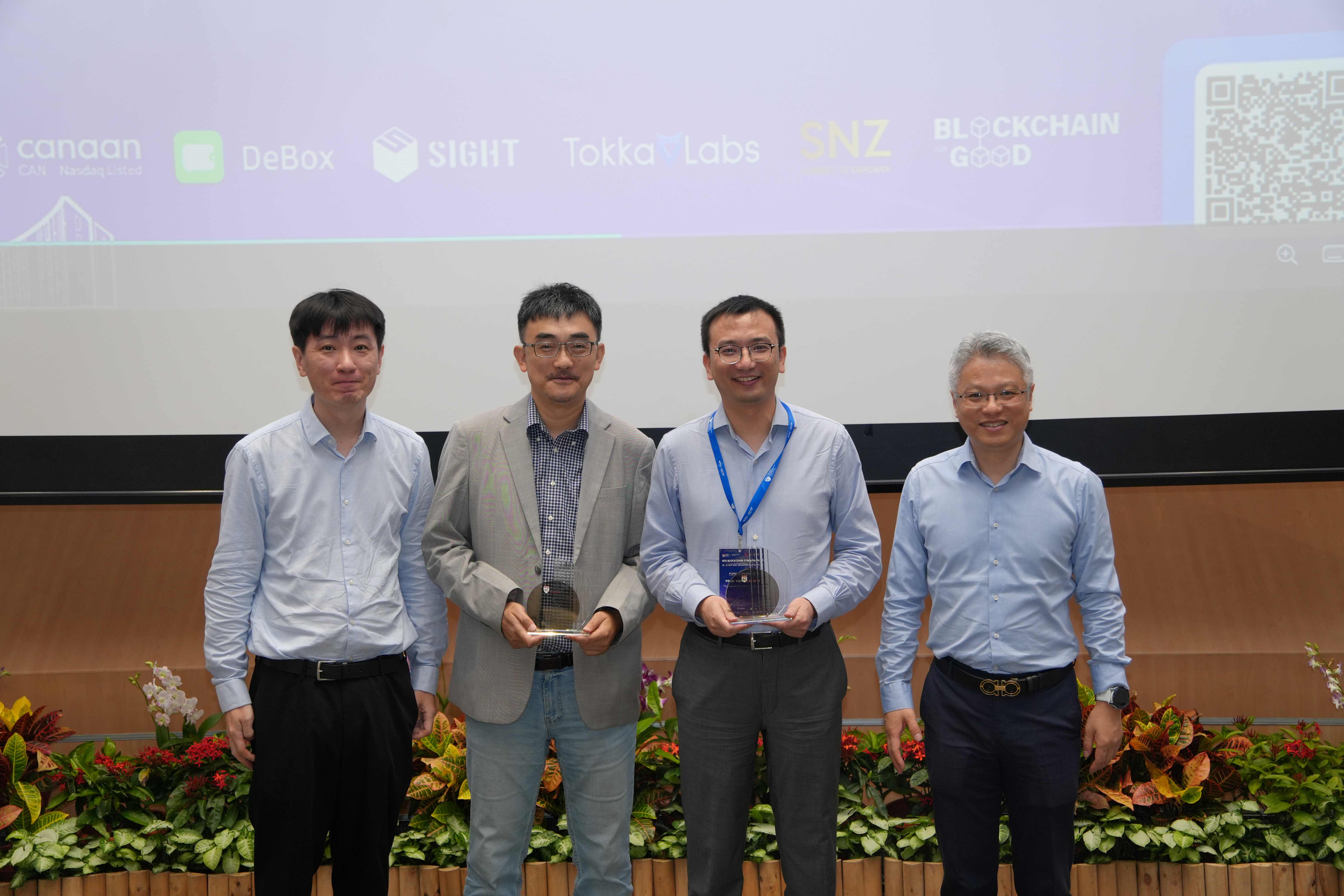
- Session 8: Regulation and Application, chaired by Dr. Ernie Teo. Professor Nir Kshetri from the University of North Carolina-Greensboro delivered "Blockchain in the Luxury Goods Industry: Institutional, Strategic, and Organizational Considerations," examining blockchain's impact on luxury brand management. Professor Raymond Choo of the University of Texas at San Antonio presented "Blockchain: An Enabler for Smart Nations," highlighting the role of blockchain in national smart infrastructure development.

Panel Discussion 2: Future Trends - What’s Next for Web3 and AI?, moderated by Dr. Ernie Teo. Panelists included Professor Zhong Shao, Professor Wenjing Lou, Ms. Mia Mai, Mr. Fang Kuai, Ms. Doro Unger-Lee, and Mr. Nangeng Zhang. The panel engaged in forward-thinking conversations about the convergence of Web3 and artificial intelligence, exploring innovative trends and predicting future developments in these intersecting fields. Their discussions provided a visionary outlook on how these technologies can synergistically drive future advancements.

The conference concluded with Closing Remarks by Assistant Professor Tianwei Zhang, Associate Director of NTU-CCTF. Prof. Zhang encapsulated the symposium’s key takeaways, praised the collaborative efforts of all participants, and reaffirmed NTU-CCTF’s dedication to advancing blockchain research and its applications.

The NTU Blockchain Symposium 2024 has set a new benchmark for global blockchain conferences, fostering meaningful exchanges and paving the way for future innovations. For those unable to attend in person, a recorded version of the symposium will soon be available on the official NTU-CCTF YouTube channel. Stay updated with our latest research and upcoming events by visiting the NTU-CCTF website and following our social media platforms.















/enri-thumbnails/careeropportunities1f0caf1c-a12d-479c-be7c-3c04e085c617.tmb-mega-menu.jpg?Culture=en&sfvrsn=d7261e3b_1)

/cradle-thumbnails/research-capabilities1516d0ba63aa44f0b4ee77a8c05263b2.tmb-mega-menu.jpg?Culture=en&sfvrsn=1bc94f8_1)


